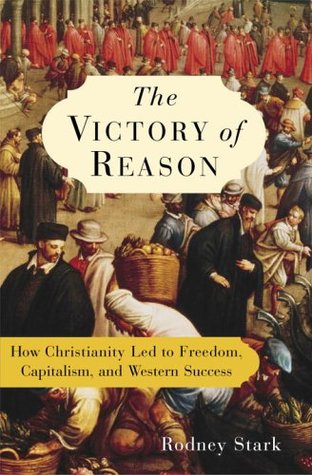Pursuing the logical implications of the right of private property led William of Ockham and other theologians to conclude that since it is a right that precedes the laws imposed by any sovereign, rulers cannot usurp or arbitrarily seize the property of those over whom they rule. A sovereign can infringe on private property only when “he shall see that the common welfare takes preference over private interest.” But “he cannot do this at his own arbitrary discretion.”
Welcome back. Just a moment while we sign you in to your Goodreads account.


